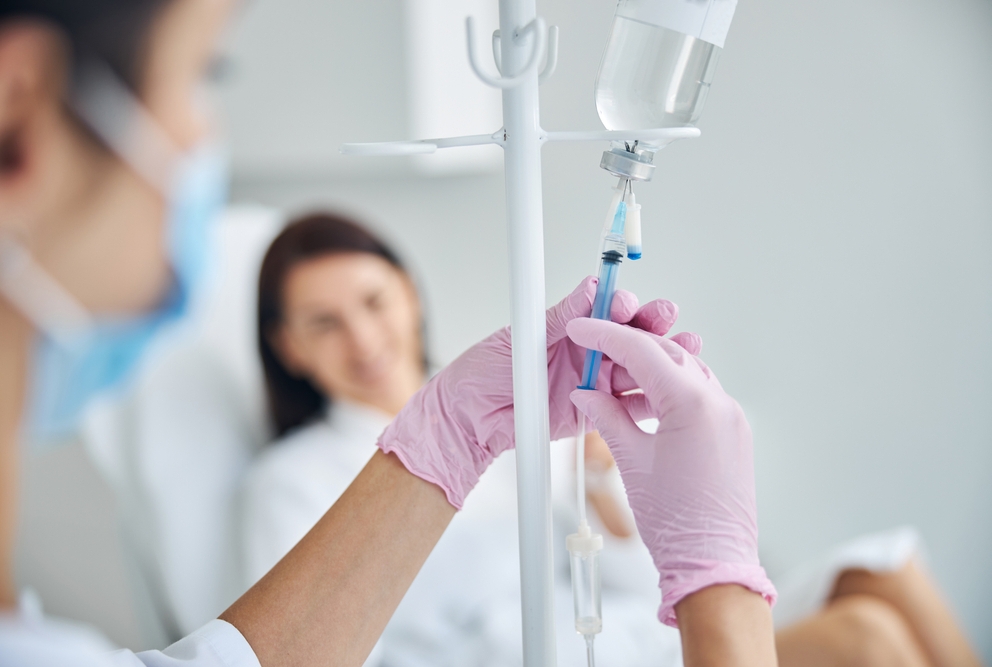
Hospitals participating in the 340B Drug Pricing Program, a large federal safety-net program, are financially incentivized to prescribe original biologic drugs to prevent and treat diseases in lieu of cheaper generic-like alternatives called biosimilar medications, according to a new study by Weill Cornell Medicine, NYU Grossman School of Medicine and University of Miami investigators.
Biologic drugs, which are produced in living cells, are more costly to produce than other types of drugs due to the complexity of manufacturing and contribute to significant growth in health care drug spending.
The study, published May 1 in Health Affairs, investigated whether the structure of the 340B Drug Pricing Program inhibits the use of biosimilar medications, which are medically equivalent but not identical to original biologic drugs due to production differences.
The 340B program, which includes nearly one-third of hospitals in the United States, is intended for hospitals and clinics serving large numbers of low-income and uninsured patients to purchase discounted outpatient prescription drugs. Drugs purchased at the 340B discount price can be administered to a broad set of patients, including Medicare enrollees, regardless of income or the ability to pay.
The study examined data from 593 hospitals, roughly half of which were 340B hospitals, to compare the two groups of hospitals’ use of biosimilars for two high-volume biologic medications, filgrastim and infliximab. The investigators focused on the treatment of Medicare patients in the outpatient setting. Filgrastim is used to treat adverse effects of chemotherapy; infliximab is prescribed for autoimmune diseases, including rheumatoid arthritis, Crohn’s disease, ulcerative colitis, ankylosing spondylitis, plaque psoriasis and psoriatic arthritis.
“The 340B program was associated with a 22.9 percentage point reduction in biosimilar medication use,” said Dr. Amelia Bond, the Walsh McDermott Scholar in Public Health and assistant professor of population health sciences at Weill Cornell Medicine, who co-led the study with Dr. Emma Dean, assistant professor of health management and policy at the University of Miami, and Dr. Sunita Desai, a health economist at the NYU Grossman School of Medicine. At the same time, there was a 77 percent increased use of biologic drugs overall in hospitals participating in the 340B program. Dr. Bond attributed the higher use of biologic medications in 340B hospitals to manufacturer discounts these hospitals receive on purchases of drugs, which includes a guaranteed 22.5 percent list price discount and additional discounts when a manufacturer raises prices above inflation.
All biologic medications in this study were eligible to receive a manufacturer discount through the 340B program, however according to the study, evidence suggests biosimilar medications receive a lower discount than original biologic medications because the biosimilar sales price is generally lower. For both types of medications, Medicare reimbursement to 340B and non-340B hospitals is the same, but the reimbursement amount is generally lower for biosimilar medications.
“Financial incentives at the hospital level matter,” Dr. Bond said. With a one-year supply of the biologic medication, infliximab, as an example, “the average profit margin for a non-340B hospital is $1400. For a 340B hospital, it was almost $10,000,” Dr. Bond said. 340B hospitals are not required to funnel profits from the drug pricing program to patients. Patients with original Medicare who are covered by supplemental Medigap Medicare insurance for prescription drugs are still responsible for a 20% coinsurance rate for original biologic and biosimiliar medications. Because biosimilar drugs cost less to develop, they will typically cost less for patients.
Biologic medication is driving 80 to 90 percent of the growth in pharmaceutical spending, with only 1 to 2 percent of the population prescribed a biologic medication. “To reduce U.S. health care costs, biosimilar drugs can help brings costs down,” Dr. Bond said.
The study highlights the unintended consequences of legislation meant to help support hospitals that serve low-income patients. “Our study adds to the evidence that the 340B program should be modified to better hit its intent,” Dr. Bond said.
To avoid stifling the use of these generally lower-cost and clinically equivalent products, Dr. Bond recommends restructuring the reimbursement for drugs purchased through the 340B program. “For example, MedPac proposed one common reimbursement, which would incentivize hospitals in the program to shop around for the cheapest option, whether it is a biosimilar or original biologic drug,” she said.

